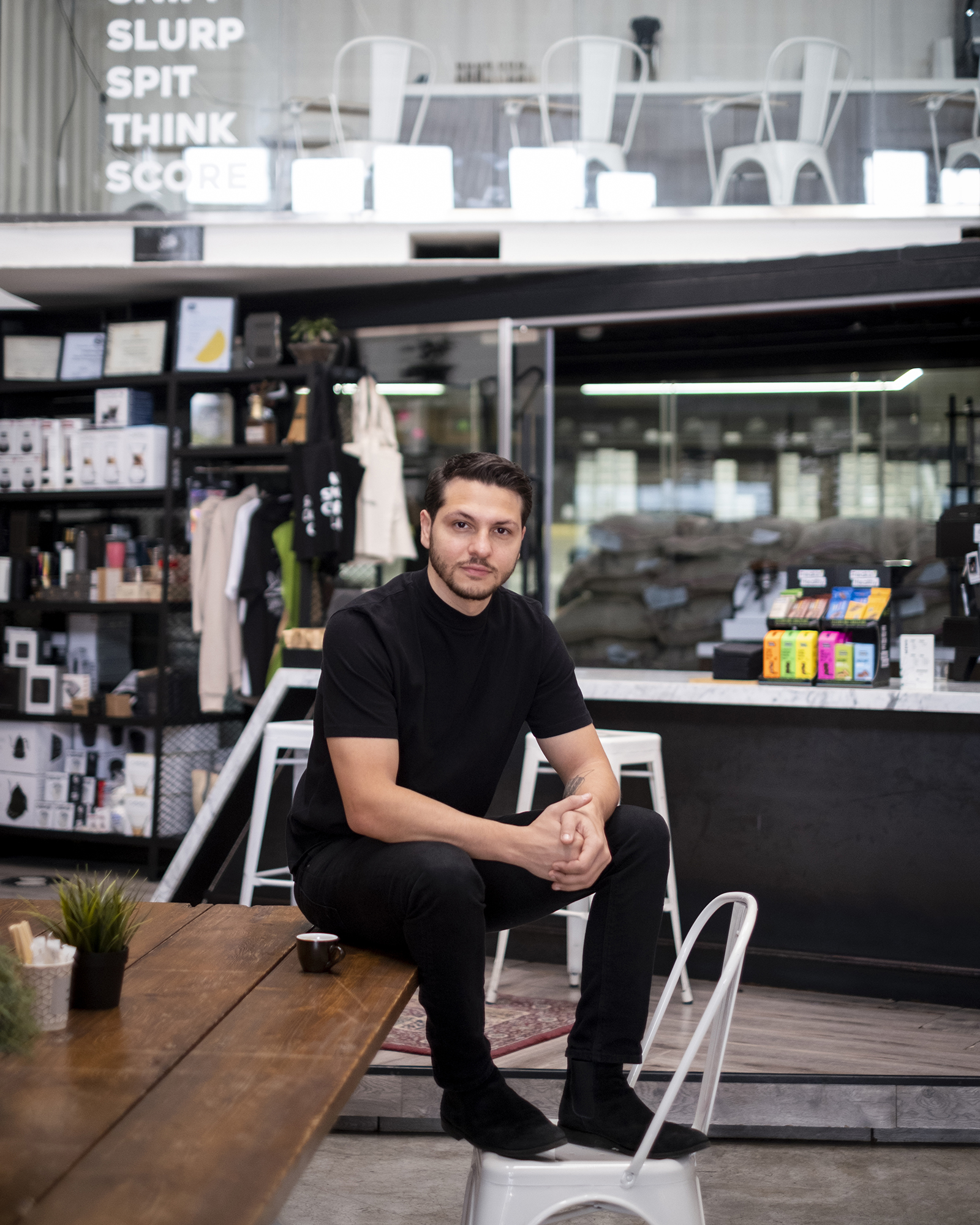Dubai may not immediately come to mind as one of the world’s foremost coffee capitals. But over the past five years, the local coffee scene has developed to the point where the city should be considered right up there with global coffee meccas like Melbourne, Seattle, and Portland, Ore., argues local entrepreneur Karim Hassan. “Dubai is definitely top five,” he says.
He should know. Back in 2015, Hassan founded Seven Fortunes, which has since grown into one of the most successful of a crop of Dubai-based small-batch coffee roasteries, many of which are experimenting with bold flavors and novel blends. Indeed, Dubai is in the middle of an explosion in all things coffee; registrations for local coffee businesses spiked nearly 150% last year, to 171 applications compared with 69 in 2020. Seven Fortunes’ roasts, meanwhile, are now offered at around 100 cafés, hotels, and restaurants around Dubai and elsewhere in the Middle East.
Coffee has deep cultural roots in Dubai—it’s “in the blood of the people,” says culinary expert Holly Williams-Lloyd, founder of the Huntr, a Dubai food site. But in the past, drinkers preferred traditional Arabic styles and big-batch offerings from foreign chains. Hassan and others like him found success by introducing new, often exotic and complex blends, though his roasts weren’t an immediate hit. “People were expecting traditional dark-chocolate flavors, so when they tried my coffee that had flavor profiles of mango, pineapple, and passion fruit, they freaked out,” he says. “Education was a huge part of the business in the early days.”
Hassan started Seven Fortunes as a “side hustle” when he was 22 and working in finance at HSBC; it’s a product of his personal frustration with the boring local offerings of the time. “I wasn’t satisfied with the quality of the coffee that was being offered in the market, so I started making it myself,” he says. Before long, he was selling his blends to area businesses—including his former employer. But his early success came at a cost. “I was super driven, working 19-hour days,” he says. “I burned out many times and should have had a better work-life balance.”

Still, Hassan stuck with it, learning about both beans and bean counting as he went. “I was young when I started the business; I didn’t have a clear vision or years of experience. I had to learn by doing,” he says. Hassan’s dedication and coffee obsession have made him and Seven Fortunes “stand out in [Dubai’s] competitive coffee market,” says local food critic Laura Coughlin.
As it did with almost every business in the world, the COVID-19 pandemic took a big toll on Seven Fortunes beginning in March 2020, affecting every part of its supply chain. “Some of the farmers are small producers who we order from a year in advance. They grow their crop based on the expectation that I am going to buy it. We all took a hit,” says Hassan.
With restrictions lifted, it’s business as usual in Dubai and Hassan is focused on growth. The company generated $4.1 million in 2021, up 25% year on year. He is particularly proud of Seven Fortunes’ expansion into his home country of Egypt, where he now has 20 outposts. And he’s eagerly awaiting a shipment of a rare coffee variety from East Africa called Eugenioides; Seven Fortunes is one of only 10 roasteries in the world set to receive a share of the crop, which boasts a unique sweet flavor. “It’s a big win for us,” Hassan says. “It’s like a high-end diamond.”
More Must-Reads from TIME
- Cybersecurity Experts Are Sounding the Alarm on DOGE
- Meet the 2025 Women of the Year
- The Harsh Truth About Disability Inclusion
- Why Do More Young Adults Have Cancer?
- Colman Domingo Leads With Radical Love
- How to Get Better at Doing Things Alone
- Michelle Zauner Stares Down the Darkness
Contact us at letters@time.com